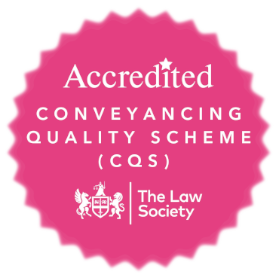 When an unmarried couple buy a house together, they are both often named on the mortgage and title deeds to the property. This means they share ownership of the house and are jointly responsible for meeting the mortgage repayments. However, it is possible to be named on the mortgage but not own the house, and vice versa. Accordingly, the answer to the question, ‘my name is not on the mortgage what are my rights UK not married’ depends on whether or not you are registered as owner of the property.
When an unmarried couple buy a house together, they are both often named on the mortgage and title deeds to the property. This means they share ownership of the house and are jointly responsible for meeting the mortgage repayments. However, it is possible to be named on the mortgage but not own the house, and vice versa. Accordingly, the answer to the question, ‘my name is not on the mortgage what are my rights UK not married’ depends on whether or not you are registered as owner of the property.
Please call us now on 01603 672222 for a no-obligation conversation today or Click Here To Make An Online Enquiry.
“I was delighted by the prompt response and the friendly helpful service we received. Thank you.”
I Am On The Title Deeds, But My Name Is Not On The Mortgage What Are My Rights UK Not Married
Title deeds are documents recording, among other things, who legally owns the property. They are not the same as mortgage deeds, which are documents confirming the loan from the lender to the borrower secured against the borrower’s property. Mortgage deeds outline the nature of each party’s obligations and the terms of the loan, such as the interest rate and repayment schedule.
Sometimes, a couple may buy a house together but decide the mortgage will be in only one partner’s name. There are several potential reasons for this, such as the partner having a better credit score or higher income than the other.
If you are registered as owning the property jointly with your partner, not being named on the mortgage deeds does not affect your rights over the property. It simply means you are not liable to repay the mortgage. Clearly, though, if your partner defaults, your house is at risk of being repossessed by the lender.
I Am Not On The Title Deeds And My Name Is Not On The Mortgage What Are My Rights UK Not Married
Unmarried individuals have very limited rights over assets linked to their relationship that they do not legally own. If you are not married or in a civil partnership, and do not own the property you share with your partner, you have no automatic rights over it, regardless of the length of time you have lived there. Accordingly, if you separate from your partner, you may be forced to leave the house you consider home with no entitlement to a share of it.
Married couples or civil partners, on the other hand, enjoy fairly far-reaching rights. For example, if a marriage breaks down, the spouse who does not legally own the property is entitled to remain living there until the divorce proceedings have been finalised. The house is classed as a matrimonial asset and will form part of the divorce financial settlement, regardless of the legal position with regard to ownership.
This disparity in the law is addressed to some extent by an Act of Parliament known as the Trusts of Land and Appointment of Trustees Act 1996. The Act, more commonly referred to as ‘TOLATA’, allows a Judge to make various orders regarding how a property is beneficially owned. TOLATA can be invoked by anyone claiming beneficial ownership of a property but is most commonly relied on by unmarried individuals claiming a share of the house they lived in with their ex-partner.
When considering TOLATA claims, the Judge must consider what the parties’ intentions were, not what might be a fair outcome in the circumstances. If you can convince the Judge that you and your ex-partner intended to own the house jointly, you may be deemed to have a beneficial interest in it.
Since the outcome of a TOLATA claim depends entirely on the parties’ intentions, evidence is key. Each case turns on its own facts, and evidence that might convince a Judge in one case that the parties intended to own the property jointly, may not do so in another. The types of evidence that may be relevant include the non-owning partner having paid for an extension or other significant refurbishments to be made to the property.
TOLATA claims are notoriously complex and unpredictable. However, with our family law solicitors, you are in safe hands. They have assisted countless clients involved in TOLATA claims, with considerable success. They give frank, practical advice and will pursue the quickest, most cost-effective solution available in your situation. Sometimes, this might be Court proceedings, but often, a TOLATA claim can be settled through negotiation or alternative dispute resolution methods, such as mediation.
How To Protect Your Position
If you are an unmarried individual living in your partner’s home, you have very limited protection from the law, so it is incumbent on you to protect your position. If you want to have a chat with our family law solicitors about how best to do this, they would be delighted to help. Often, entering into a straightforward Cohabitation Agreement with your partner is a quick, convenient way of putting both your minds at ease. You can use the Agreement to document how you intend your assets to be dealt with in the event of a separation and rely on the Agreement should your partner seek to avoid dividing the assets as arranged if your relationship ends.
Please call us now on 01603 672222 for a no-obligation conversation today or Click Here To Make An Online Enquiry.
“Excellent explanation of scenarios and Nakita was always happy to answer any questions.”

